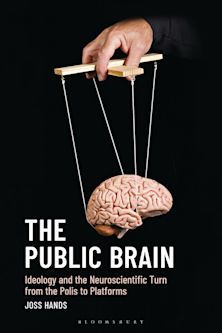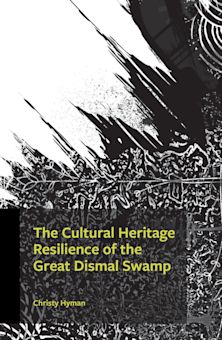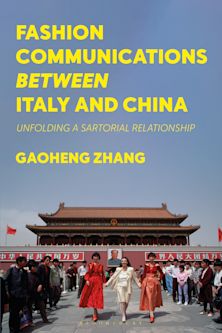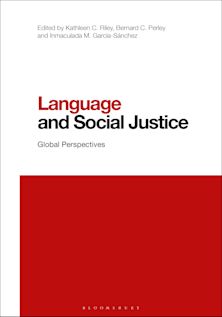- Home
- ACADEMIC
- Anthropology
- Cultural Anthropology
- Globalizing Critical Theory
Globalizing Critical Theory
Max Pensky (Anthology Editor) , James Bohman (Contributor) , Jacques Derrida (Contributor) , Nancy Fraser (Contributor) , Jürgen Habermas (Contributor) , Peter Uwe Hohendahl (Contributor) , Andreas Huyssen (Contributor) , María Pía Lara (Contributor) , Silvia L. López (Contributor) , Thomas McCarthy (Contributor) , Eduardo Mendieta (Contributor) , F Scott Scribner (Contributor) , Clay Steinman (Contributor) , Carsten Strathausen (Contributor)
Globalizing Critical Theory
Max Pensky (Anthology Editor) , James Bohman (Contributor) , Jacques Derrida (Contributor) , Nancy Fraser (Contributor) , Jürgen Habermas (Contributor) , Peter Uwe Hohendahl (Contributor) , Andreas Huyssen (Contributor) , María Pía Lara (Contributor) , Silvia L. López (Contributor) , Thomas McCarthy (Contributor) , Eduardo Mendieta (Contributor) , F Scott Scribner (Contributor) , Clay Steinman (Contributor) , Carsten Strathausen (Contributor)
This product is usually dispatched within 2-4 weeks
- Delivery and returns info
-
Flat rate of $10.00 for shipping anywhere in Australia
You must sign in to add this item to your wishlist. Please sign in or create an account
Description
Across a spectrum of academic disciplines, the topic of globalization is at the forefront of contemporary efforts to understand a dynamically changing world society. How might critical social theory respond creatively to the challenge of thinking and theorizing globalization in its full complexity? Globalizing Critical Theory collects essays by scholars at the forefront of Critical Theory as they confront this timely topic. This book offers readers a chance to see contemporary Critical Theory in its full range-from political analyses of a global public sphere, critical race theory, and the politics of memory, to aesthetics and media studies. It includes crucial new essays by Jürgen on the transformations of the global order in the wake of the American invasion of Iraq, and major interventions by Nancy Fraser, Peter Hohendahl, Andreas Huyssen, James Bohman, and others. Globalizing Critical Theory provides a fascinating exploration of how Critical Theory is confronting the question of globalization-and how globalization is transforming Critical Theory.
Table of Contents
Part 2 Part I: Globalization and Hegemony: Two Interventions
Chapter 3 Interpreting the Fall of a Monument
Chapter 4 February 15; or, What Binds Europeans Together: A Plea for a Common Foreign Policy, Beginning in Core Europe
Part 5 Part II: The Global Public Sphere
Chapter 6 Transnationalizing the Public Sphere
Chapter 7 Toward a Critical Theory of Globalization: Democratic Practice and Multiperspectival Inquiry
Chapter 8 Democratic Institutions and Cosmopolitan Solidarity
Chapter 9 The Transnational University and the Global Public Sphere
Part 10 Part III: Race, Memory, Forgetting
Chapter 11 Beyond Eurocentrism: The Frankfurt School and Whiteness Theory
Chapter 12 Vergangenheitsbewältigung in the United States: On the Politics of the Memory of Slavery
Chapter 13 Resistance to Memory: The Uses and Abuses of Public Forgetting
Part 14 Part IV: Globalizing Visions: Science, Technology, Aesthetics
Chapter 15 Globalizing Critical Theory of Science
Chapter 16 In the Stocking-Steps of Walter Benjamin: Critical Theory, Television, and the Global Imagination
Chapter 17 Adorno; or, The End of Aesthetics
Chapter 18 Peripheral Glances: Adorno's Aesthetic Theory in Brazil
Product details
| Published | 28 Jan 2005 |
|---|---|
| Format | Paperback |
| Edition | 1st |
| Extent | 264 |
| ISBN | 9780742534506 |
| Imprint | Rowman & Littlefield Publishers |
| Dimensions | 227 x 148 mm |
| Series | New Critical Theory |
| Publisher | Bloomsbury Publishing |
About the contributors
Reviews
-
The collection of articles, edited and introduced by Max Pensky, is an important document of the intellectual actuality of Critical Theory today. This book explains the reason why Critical Theory today has been developed into an important philosophical and political theory which is critically reflecting on the process of globalization and supports the constitution of a structure of cosmopolitan democratic institutions, of a worldwide democratic law, and of a global public sphere.
Matthias Lutz-Bachmann, Goethe-University, Frankfurt
-
In this volume Max Pensky has assembled the best in the field to address the phenomenon of globalization. Beginning with Habermas's now famous text on the global anti-war movement, Globalizing Critical Theory provides a sweeping vision of globalization in its various forms. For those interested in a critical examination of the global aspects of war, the public sphere, race and memory-as well as science, technology and aesthetics-this is required reading.
David Rasmussen, Ph.D., Boston College
-
The 11 essays on the "global public sphere" and other related topics are timely…Summing up: Recommended. Upper-division undergraduates and above.
Choice Reviews
-
This is a welcome and innovative book.
Perspectives on Politics
-
It represents an engaged and critical discussion of some various aspects of the much-discussed phenomenon of globalization, without exhausting the resourcefulness of the perspectives afforded by Critical Theory.
Philosophy in Review
-
The Critical Social Theory of the Frankfurt School was formulated to grasp the transition from nineteenth-century laissez-faire capitalism to early 20th century 'state-capitalism' or 'organized capitalism.' Today we are experiencing another epochal shift from Fordism to post-Fordism, from national economies to neo-liberal globalization. The powerful essays in this volume seek to come to terms with this new shift in its political and socio-cultural ramifications. A critical theory of globalization involves globalizing and transforming critical theory itself.
Seyla Benhabib, Eugene Meyer Professor Emerita of Philosophy and Political Science, Yale University, senior research fellow, Columbia Law School


































